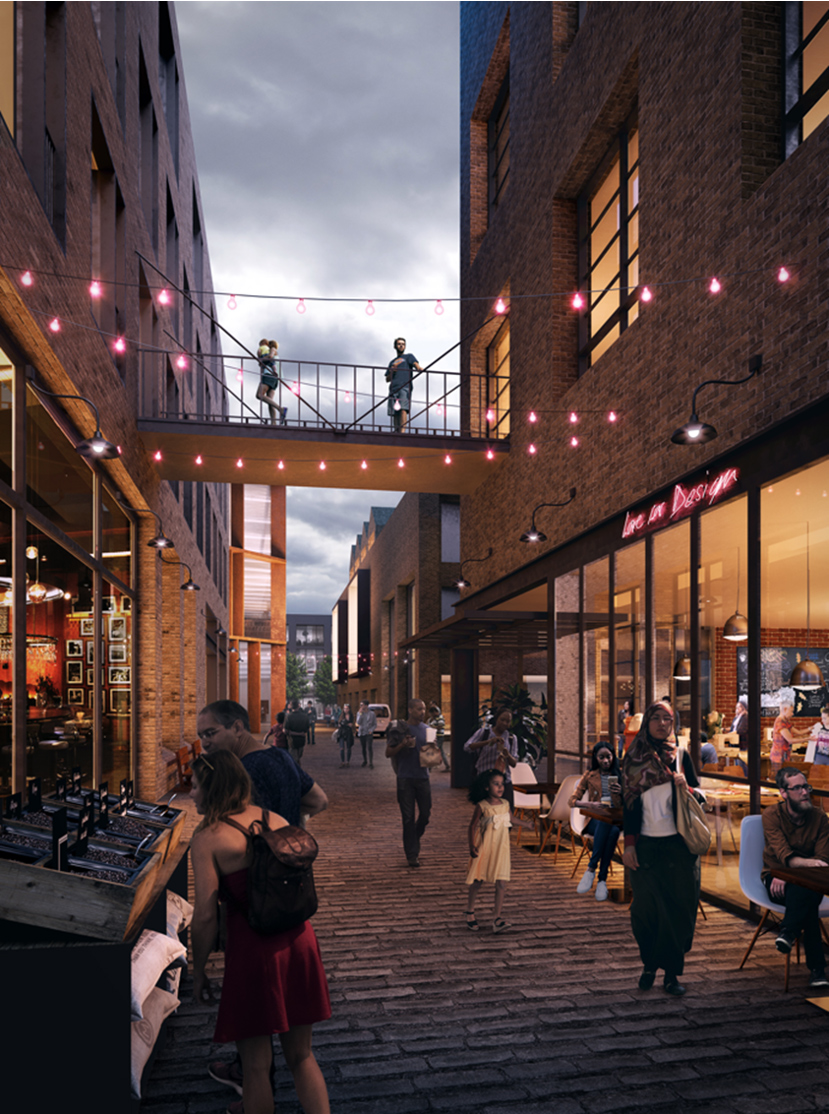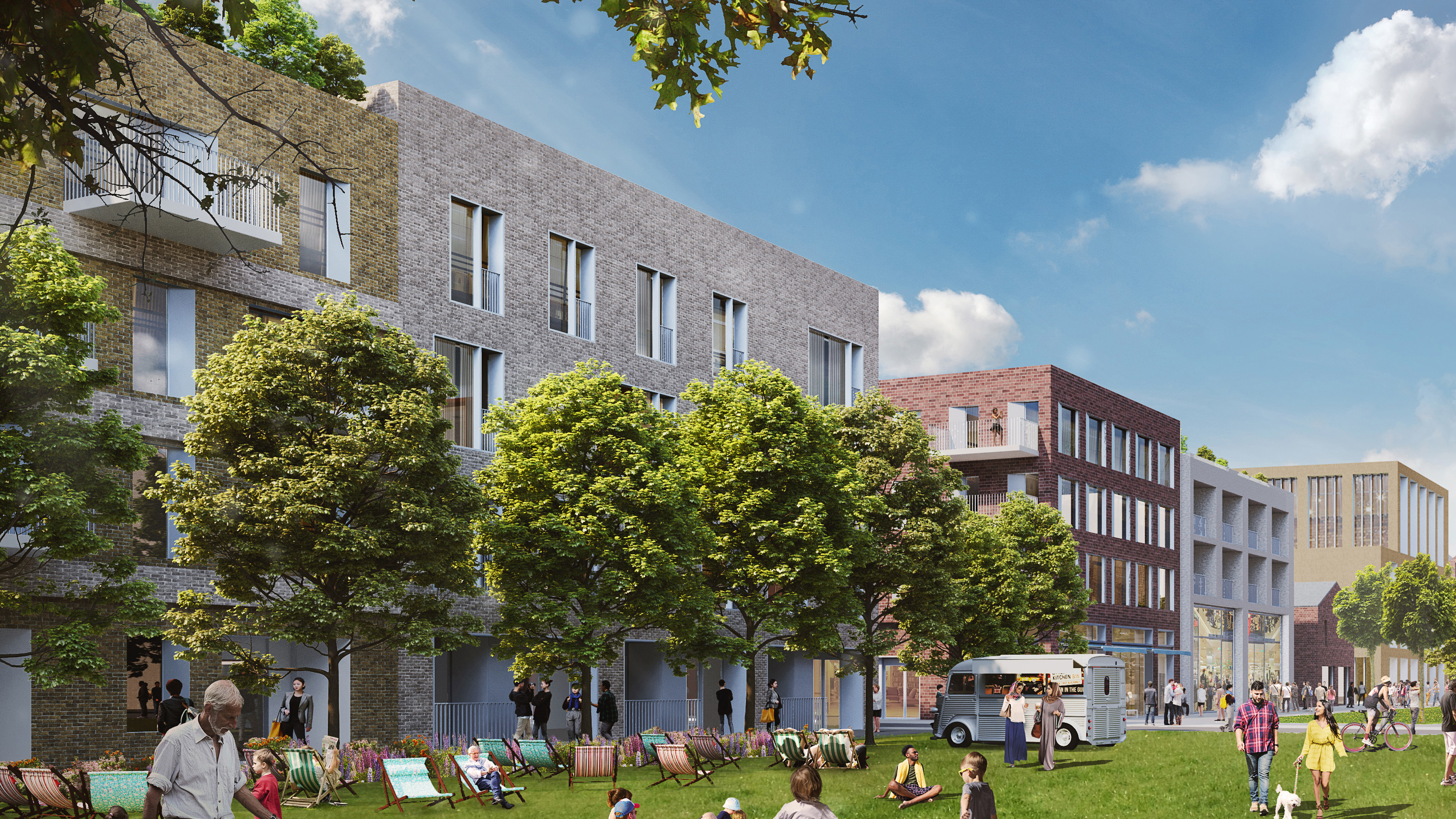
LJ: What made you decide to become a surveyor?
Abigail Jones: I come from a farming background and studied geography as an undergraduate, and always had an awareness and interest in my surroundings. Surveying is such a varied profession that affects everyone. We experience property and the environment in a personal and professional sense day in, day out. The pandemic has highlighted this because we have been inside our houses all day, every day. We were made aware of how the space we were living in was making us feel. So the environmental, social and governance (ESG) and health and well-being agendas are a huge growth area for our profession, for good reason.
LJ: What skills and other qualities would you say people need for this type of work?
AJ: Creativity, enthusiasm and passion, because what you can achieve is transformational. The opportunity has to be matched by your determination to achieve the best you possibly can from a place.
It is a profession that is flexible and allows you to move within it. There are so many possibilities in terms of roles and specialisms and sectors that it allows you to navigate yourself to where your strengths and skill sets lie.
Once you qualify, you're not stuck in that sector. The beauty of surveying is that you create a very flexible skill set that can be applied in different areas. It is also about communication, because it involves people and the relationships you have.
LJ: Why did you choose your specialism in development?
AJ: I work mainly in agency and consultancy in the development sector. I was fortunate that I had an internship in the development team in Savills, and then I realised it's a broad sector that involves a number of teams. I really enjoy working with different specialists.
For example, we work closely with our rural team at the inception of land development, mainly in the East of England on greenfield sites and regeneration schemes. Then you move on to work with the planning team and sometimes the commercial team, the urban design team and the residential development sales team.
I have such a broad view of the process, and I watch the built environment change and develop and improve around me. The beauty of my role is that I see the process through from beginning to end. I'm interested in influencing change and collaborating with other specialisms. I am really interested in the concept of placemaking which is under pressure to be more than the aesthetic.
It is no longer just about early investment in the infrastructure or providing a quality environment. It's about sustainability, inclusiveness, health, wellbeing, connectivity, creating a diverse and integrated community – all social value aspects, which alongside good development principles, should be fostered from the outset, at planning stage, however they aren’t easily measured financially.
LJ: Did you have a mentor?
AJ: I’ve had a number of colleagues who have been incredibly supportive and encouraging over the years, but my entire team and company provided me with a number of opportunities. I entered the job market in 2013 after the financial crash, just when things were just starting to become more positive.
Now I make sure that I provide my team, especially the more junior members, with that support network and encourage them to ask questions.

I ask questions every day myself and have a strong appetite for anticipating where the industry is heading. Learning is fundamental to our role. I like to surround myself not just with colleagues and clients, but also my peers from other companies. It's all about learning from each other and gaining different perspectives. I think it's important to keep your network as wide as possible.
I'm a firm believer in sharing ideas and challenging each other as well to support innovation across the sector. I recognise the importance of leading the discussion on making improvements in our industry. Through blogs that I write, presentations I provide or through my day-to-day role, I really enjoy the opportunity to influence the future of the development land sector.
LJ: Do you have a career plan?
AJ: I'm very ambitious, though I haven't given myself a target. I have worked hard and that's always going to pay dividends. Determination and hard work bring their own opportunities. And I like to support others around me.
Early in my career, I was always going that little bit further to raise my profile and meet new people. This is daunting when you don't know anyone and everyone is so much older than you, and you don't know who to approach. But you have to push yourself out of your comfort zone.
LJ: What is an average day like for you?
AJ: Every day is different. In our profession you work with such a broad spectrum of clients and projects. I think that should be a consideration for anyone considering a career in surveying.
An average day usually entails working closely with different project teams on different sites. That may mean advising them on how to promote a particular asset through the planning system or suggesting an alternative use for it.
It involves problem-solving and imagination as well. If you are looking at a property or a field, you've got to be able to visualise what it could be. The job is creative: it's not just the financials and running the numbers, though of course that's important. It is also about thought leadership, and responding to what the community wants and to the environment.
We want to work out how we can create places that are going to enhance the environment, communities, the climate and health and well-being are all interlinked. There is potential to create some amazing new places and spaces that manage to benefit all three.
It isn't just about housing, either; it's also about non-residential uses. How are you going to create that community? What are the intangible qualities that create the place, and how can you define them – thinking about the facilities and the infrastructure that are required?

LJ: What are the main challenges of working on large-scale projects?
AJ: Obviously it depends on technical delivery factors and the ownership status, and these may need to be worked through. The planning system is a process that has to be navigated. You must not think about your scheme in isolation: you have to think about connectivity to the existing settlement.
You've got to consider future generations as well and what they want from the place they're going to live, work and play in. So we think about how a scheme could work in a way that is sustainable and sensitive to the environment. Obviously it has to work financially as well, for the landowner, those delivering it and potential purchasers. It's important to provide a wide range of affordable homes, of different types and tenures.
It's a constant balancing act in terms of financial viability, securing planning permission and responding to the potential residents' wants and needs. That's the exciting part, because you are establishing a new place and community.
We need to be better at understanding that it's not just about these places looking aesthetically pleasing and being designed with quality products. It's also about understanding how the different uses in the larger scheme are going to complement each other and operate practically. The best projects take into account the intangible qualities, the mechanics of a new community and what they actually need.

LJ: Is there one project that you've particularly enjoyed?
AJ: I definitely align with what certain landowners or clients are trying to achieve with places they're seeking to deliver. For instance, I work closely with Homes England including on their planned sustainable new town, Northstowe, in Cambridgeshire. I support its strategic objectives of accelerating the provision of homes through the use of modern methods of construction and environmentally friendly approaches.
We are certainly seeing more and more landowners and clients realising the importance of the ESG agenda and carbon-zero initiatives. Those clients are exciting to work with because they have a long-term, strong and well-founded vision.
LJ: Why did you take on the role of an RICS APC assessor and counsellor?
AJ: I wanted to help others especially as they’re starting out in their careers. I'm grateful for those individuals who have helped me in my career, and I want to make sure newcomers to the profession feel that they have that opportunity for support and mentoring as well.
The APC represents the knowledge that is fundamental for a chartered surveyor's career. It's a stamp of approval for best practice, and highlights your expertise to the client. I wanted to support that process and give something back to the profession. You're influencing an individual's credibility and helping them develop into the best professional they can be.
LJ: Do you think do you think the skills surveyors need are changing?
AJ: Technology has a large part to play in our profession, and can enhance our offering. We need to understand how it can improve and make us more efficient and effective. However, we need to pick and choose when to embrace it given our profession is centred around people and relationships. The workforce now entering our company grew up on social media. So we need to ensure we understand the new expectations and requirements of this generation. They will be motivated in different ways to us.
LJ: Do you have a message for aspiring surveyors?
AJ: It's a profession that you can be enthusiastic and passionate about, but it does require you to work hard to progress. It's great to be involved in a sector that everyone can relate to, and which can potentially influence and improve everyone's lifestyle and how they feel.
'The APC is a stamp of approval for best practice, and highlights your expertise to the client'

.png)